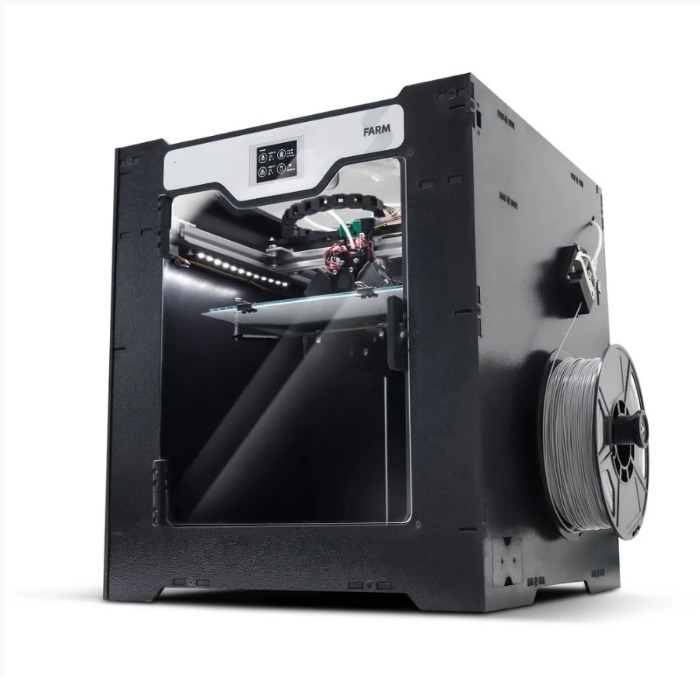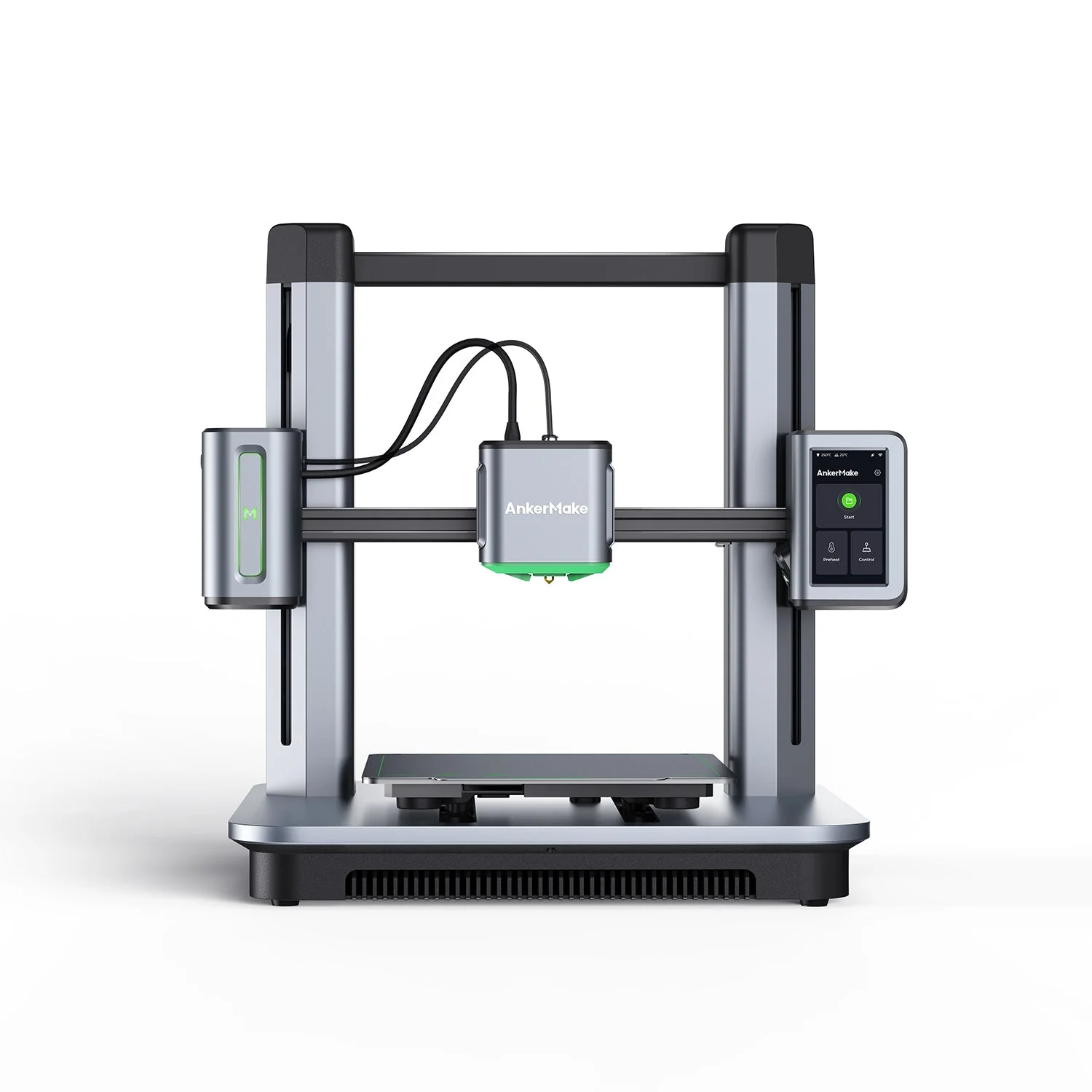Compare FARM vs M5
Comparison between the best 3D printers
Choose the best 3D printer at the best price. The cheapest 3D printers are here.
Buy a 3D printer here with 3D Fila.
 |
 |
|
| Model | FARM |
M5 |
| Printing Material | Filament | Filament |
| Buy Filament for Sethi 3D FARM | Buy Filament forAnkerMake M5 | |
| Estimated price | $1127,00 | $497,00 |
| Manufacturer | Sethi 3D | AnkerMake |
| Release Year | 2021 | 2023 |
| Print Volume [mm] | 240x240x240 | 235x235x250 |
| Printer Size [mm] | 550x42x500 | 502x438x470 |
| Weight [kg] | 15,7 | 12,6 |
| Power Loss Recovery | YES | YES |
| Enclosed printer | YES | NO |
| Bed Leveling | Automatic | Automatic |
| Filament End Sensor | YES | YES |
| Bed type | Heated | Heated |
| Power supply system | Bowden | Direct Drive |
| Standard nozzle | 0,4 | 0,4 |
| Maximum Nozzle Temperature [°C] | 270 | 260 |
| Maximum Bed Temperature [°C] | 120 | 100 |
| Maximum printing speed [mm/s] | 80 | 500 |
| Filament holder | YES | YES |
| Camera for supervision | NO | NO |
| Recommended filaments | PLA, PETG, Tritan, Flex, ABS | PLA, PETG, ABS |
| Recommended slicers | Cura, Simplify, Slic3r | AnkerMake Studio (macOS, Windows), Simplify3D, Ultimaker Cura, PrusaSlicer |
| Maximum Resolution [mm] | 0,1 | |
| Processor | ||
| Display | Touchscreen TFT | Touchscreen 4,3'' |
| Power Supply | 450 W | 350 W |
| Connectivity | USB | Wi-Fi, USB-C, OTA Upgrade |
| Operating systems | Windows, Mac, Linux | Windows, Linux, Macbook |
| Date of registration in the system | 2022-10-11 | 2024-07-08 |
| Release date | 2021 | 2023 |
| Extra features | Sethis Farm printer offers a generous 240 x 240 x 240 mm print area, ideal for large projects. Its intuitive touchscreen display makes it easy to operate, while the intelligent sensor prevents problems by detecting filament shortages or jams. Its power recovery feature allows you to resume printing after interruptions. It stands out for its 9-point optical auto-leveling and high-performance heated bed, ensuring accuracy and versatility on different materials. Its 32-bit electronics and silent drivers promote a smooth and efficient experience. In addition, the Farm has a closed cabinet, expanding the range of usable polymers, and a turbo cooling system to speed up the process between prints. The machine also offers practicality with a storage drawer and simplified software updates. | The AnkerMake M5 printer stands out for its impressive print speed, reaching up to 500mm/s. It features AI print monitoring, an integrated camera for creating timelapses, auto-leveling bed with pressure sensor, direct extruder, flexible PEI-coated build plate, and Wi-Fi and USB-C connectivity. Assembly is quick and easy, and the printer is designed to deliver high print quality and ease of use. |
| Support for multiple colors and materials (AMS and CFS) | NO | NO |
Notes * |
||
| Cost-benefit | 6 / 10 | 7 / 10 |
| Hardware | 2.5 / 10 | 3.5 / 10 |
| Tela | . | . |
| Print volume | 3 / 10 | 3 / 10 |
| Performance | 0 / 10 | 4 / 10 |
Conclusion |
| Both the Sethi 3D FARM and AnkerMake M5 are noteworthy 3D printers, each offering distinct advantages that cater to different user needs. The Sethi 3D FARM, with its larger build volume and closed cabinet, provides versatility for various printing materials and larger projects. Its automatic bed leveling, reliable recovery features, and solid construction make it a good choice for consistent performance, especially for users who prioritize material variety and print quality over speed. However, it operates at a higher price point, which might deter budget-conscious buyers. On the other hand, the AnkerMake M5, with its significantly lower price, emphasizes speed and ease of use. Its impressive maximum printing speed and robust connectivity options position it well for users who need to produce prints quickly and efficiently. The integration of direct drive and responsive monitoring systems further enhances its usability, making it ideal for hobbyists looking for a user-friendly experience without the financial burden of higher-end models. Ultimately, the choice between these two printers will depend on individual priorities: if size and material versatility are paramount, the Sethi 3D FARM may be more suitable; however, for those who value speed and affordability, the AnkerMake M5 stands out as the more attractive option. Therefore, the AnkerMake M5 generally offers a better cost-benefit ratio, particularly for users new to 3D printing or those working within a budget. |

